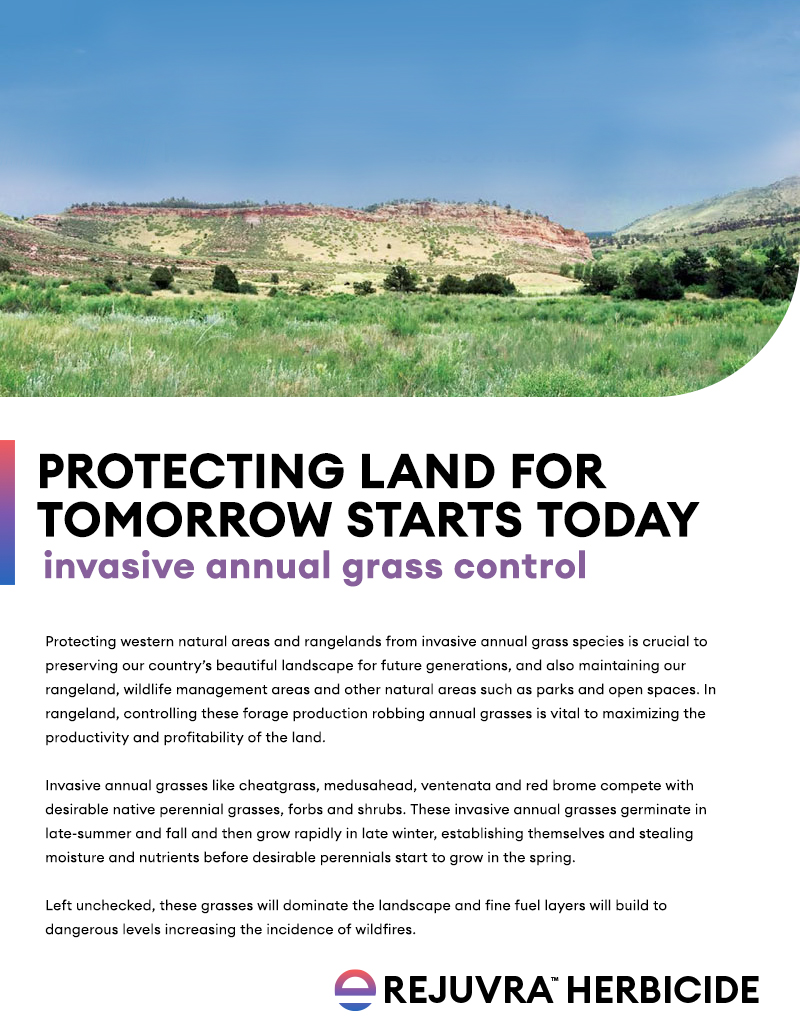What is Rejuvra Herbicide?
Key Benefits
// Consistent, long-term weed control: Up to four year control of invasive grasses, depending on weather, grazing pressure, and other factors.
// Non-volatile and good photo stability: Does not leave the application site as a vapor and has good stability when exposed to sunlight. This allows flexibility in application timing relative to rainfall events needed to activate the herbicide.
// Releases desirable perennial vegetation: Perennial plants respond quickly to the additional water and nutrients that become available when invasive annual grasses are controlled.
// Resistance management: An effective tool for managing herbicide-resistant weeds.
// Reduced time and labor costs: Fewer applications are needed to control weeds.
// Flexible tank-mixing: Can be tank-mixed with both pre- and post-emergent herbicides.
// Standard PPE requirement: Long-sleeved shirt, long pants, shoes plus socks and chemical-resistant gloves. Follow state requirements if more stringent.
// No grazing restrictions: For applications of 5 oz per acre.
| “It really knocks the ventenata and medusahead back. The response from those perennial grasses has been extraordinary behind the Rejuvra® herbicide applications. It's an increase in forage production, which is what it's all about.” Jamie Foy, Director of Agriculture Operations, Bighorn Airways, Sheridan County, Wyoming |
Use & Control
// Uniform soil coverage is important.
// Apply 5 oz/A of Rejuvra herbicide at a minimum of 5 gallons per acre by air; for ground application, use spray volumes of 20-30 gallons per acre total spray mix (apply up to 7 oz/A on areas that are not grazed by livestock).
// For good first year control, Rejuvra must be applied prior to germination of target weeds.
// To control weeds that have already germinated, a tank mix partner is needed.
// Rejuvra is a pre-emergent herbicide and will only provide effective control in areas covered by the target rate. Annual grass escapes will occur if coverage is uneven or if a lower effective rate is applied between spray swaths.
Key Species Controlled
// Cheatgrass or downy brome
// Japanese brome
// Medusahead
// Ventenata
// Red brome


